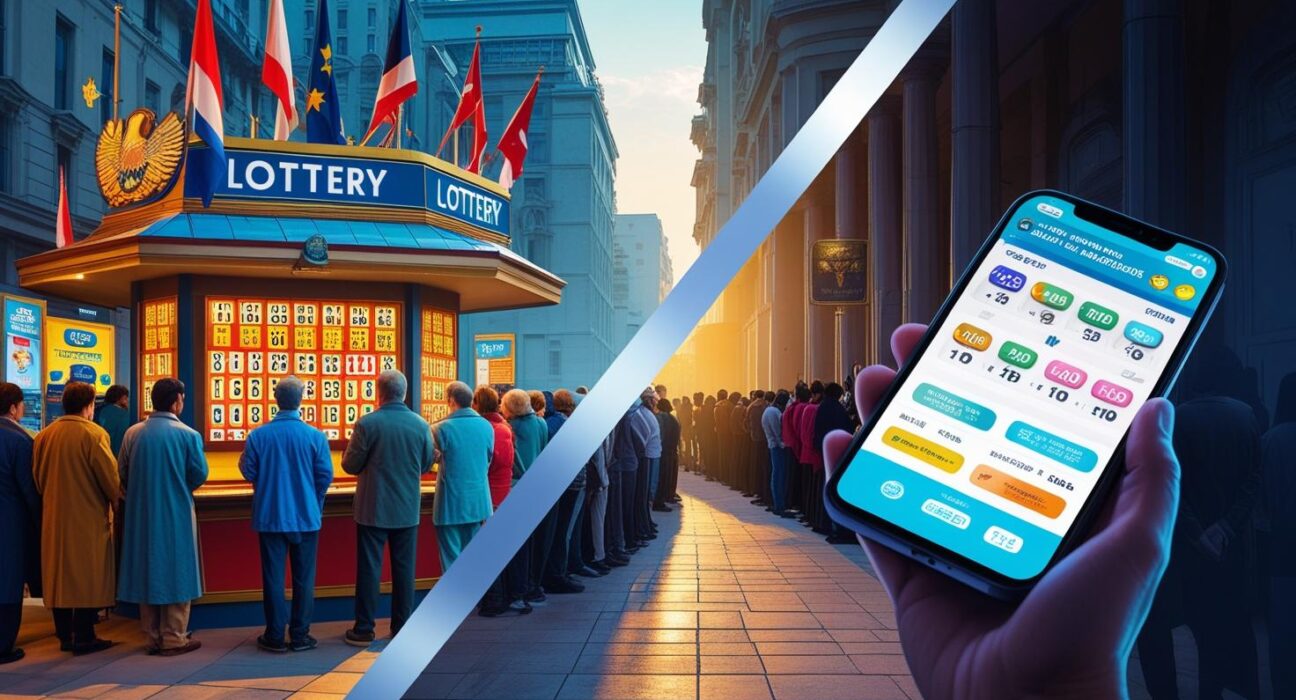The gambling world is undergoing a seismic transformation—and at the center of it lies a high-stakes showdown between two dominant forces: state-run lotteries and private gambling operators. Once clearly divided by purpose and policy, the boundaries are blurring. Today, state lotteries no longer just represent public fundraising initiatives, and private companies aren’t simply profit-driven upstarts. Both are evolving, expanding, and in some cases, encroaching on each other’s turf.
But in this fiercely competitive environment, who’s really coming out on top? Let’s dive deep into the economics, ethics, expansion, and edge that each brings to the table—and see who’s leading the global gaming race.
A Tale of Two Titans: The Landscape
State Lotteries
Established, government-run, and usually mission-driven, state lotteries have historically held a monopoly over legal gambling in many jurisdictions. Their revenues typically support:
- Public education
- Infrastructure projects
- Veterans and senior citizen programs
- Cultural and sports initiatives
These lotteries sell legitimacy with a philanthropic flavor—and in many regions, enjoy regulatory protection from competition.
Private Operators
Meanwhile, private operators—from online casinos to sportsbook giants—offer cutting-edge user experiences, dynamic games, and aggressive marketing. Their motivations are largely profit-centric, but their agility and innovation push the boundaries of what’s possible in the gambling ecosystem.
These companies include:
- International casino brands (e.g., Bet365, Flutter, Kindred Group)
- Online gaming platforms (e.g., Stake, Betway)
- Tech-forward startups (e.g., crypto casinos, esports betting platforms)
Revenue Wars: Who Makes More?
On paper, state lotteries dominate raw revenue. In the U.S. alone, state lotteries generated over $100 billion in ticket sales in 2023, eclipsing private-sector sportsbook and casino revenue.
However, private operators win in profitability. State lotteries return a large portion of their earnings to state programs and public services—often leaving slim margins for operational reinvestment. Private firms, on the other hand, leverage their flexibility to maximize shareholder returns, optimize cost structures, and invest in R&D.
Verdict: State lotteries win in scale. Private operators win in margins.
Technology & User Experience: The Digital Divide
Private operators have consistently outpaced state lotteries in digital transformation:
- Mobile-first design
- Real-time odds and betting
- In-app games and promotions
- Live streaming integrations
- Crypto wallets and Web3 features
By contrast, many state-run systems lag with outdated websites, clunky interfaces, and rigid backend systems. Still, that’s beginning to change. States like Michigan and Pennsylvania have launched impressive online lottery platforms.
Verdict: Private operators lead—by miles—in user experience.
Regulation: Who Plays by the Rules?
State lotteries benefit from operating within government-sanctioned frameworks. They essentially regulate themselves, or are overseen by friendly regulatory bodies. Their political connections can provide insulation from scrutiny, even when operating in a monopoly.
Private operators, however, navigate a minefield of regulation—especially when crossing borders. They’re often held to higher compliance standards:
- AML (Anti-Money Laundering)
- KYC (Know Your Customer)
- Marketing and advertising restrictions
- Taxation
But this also breeds innovation: Private firms invest heavily in legal teams, tech tools, and compliance automation.
Verdict: State lotteries are shielded. Private operators are battle-hardened.
Innovation & Entertainment Value
Private operators constantly innovate to stay ahead:
- Crash games
- Live dealer games
- Interactive tournaments
- Personalized player journeys
- AR/VR betting environments
State lotteries, meanwhile, have been slower to diversify. Most still rely on draw games and digital scratch cards. Innovation is risk-averse and bureaucratic.
That said, some are catching up by partnering with private tech firms and integrating eInstant games, loyalty programs, and app-based ticketing.
Verdict: Private operators dominate on innovation, though state lotteries are starting to experiment.
Trust & Public Perception
State lotteries enjoy a major trust advantage:
- Government backing lends credibility
- Profits fund public services
- Clear accountability structures
Private operators struggle with stigma:
- Seen as profit-hungry
- Tied to gambling harms
- Associated with offshore, unregulated platforms
However, some private firms are flipping the script by emphasizing responsible gambling, promoting charity partnerships, and investing in user education.
Verdict: State lotteries win the trust game—but the gap is narrowing.
Global Reach & Market Expansion
Private operators have gone global. They move quickly into:
- New regulatory markets
- Grey zones (via offshore licenses)
- Emerging economies hungry for entertainment
State lotteries, by contrast, are geographically fixed—limited by borders and legislation.
But that’s changing too. Some governments are now outsourcing lottery operations to private firms, creating hybrid models that merge public trust with private expertise. Examples include:
- IGT managing Italy’s national lottery
- Camelot (now Allwyn) operating the UK’s lottery
Verdict: Private operators win globally. State lotteries hold strong locally.
Responsible Gambling: Who’s Doing More?
Ironically, many state lotteries are less transparent about their harm-reduction practices. Studies show they disproportionately target low-income demographics through aggressive marketing.
Private operators, under heavy regulatory scrutiny, often lead in tools such as:
- Deposit and loss limits
- Session timers
- Self-exclusion tools
- AI-driven problem gambling detection
Verdict: Private operators, surprisingly, lead in responsible gambling tools.
Strategic Partnerships & Future Models
We’re now seeing increasing collaboration between public and private forces. Governments are:
- Licensing private firms to develop state lottery tech
- Launching hybrid lotteries powered by private backend engines
- Outsourcing lottery operations entirely while retaining ownership
Meanwhile, private firms are lobbying for legal access to traditionally state-controlled markets.
The future may not be binary. It may look like public-private synergy.
Conclusion: Who’s Winning?
The answer isn’t black and white. In many ways:
- State lotteries win in trust, scale, and political leverage.
- Private operators win in tech, profit, and player engagement.
But this isn’t a zero-sum game. The two sides are converging. As digital disruption forces both to evolve, we may soon see a landscape where:
- State lotteries look more like entertainment brands
- Private operators adopt more public service ethos
- Players benefit from better experiences, greater transparency, and broader choice
So who’s really winning?
The player.
Because when competition heats up, innovation thrives—and the future of gambling becomes more dynamic, diverse, and democratized than ever before.











